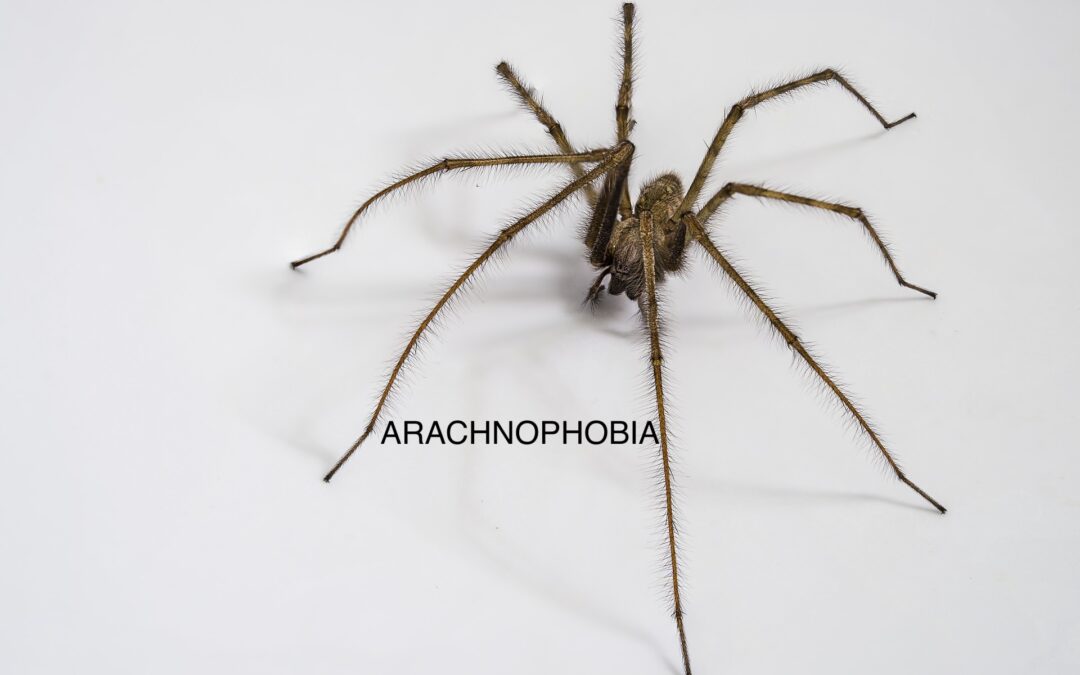Arachnophobia
Why are so many of us scared of spiders?
Most of us are afraid of something. Quite a lot of us, as it turns out, of spiders. Up to 50% of women and 18% of men classify themselves as scared of spiders, but only about 5% of those people are considered truly phobic.
So why are so many of us scared of spiders and how do we know if our fear is a phobia?
On face value, the question as to why so many of us fear spiders is bafflingly. Most spiders, particularly in the UK, are harmless, little creatures, who mind their own business doing good work webbing and catching flies. In fact, most spiders in the world fall into this category. We don’t have the same reaction to beetles or ladybirds or even the less appealing fly. But the spider can cause very strong, even hysterical, reactions.
You may have heard the theory that we are born with two innate fears embedded within our subconscious and inherited from or ancestors. These two fears are the fear of loud noises and the fear of falling. But as it turns out these are not the only fears we can be born with. A scientist from Germany name Max Planck led an experiment with the Institute for Human Cognitive and Brain Sciences. He enlisted a group of 6-month-old babies, deemed too young to have ‘learnt’ a fear from their parents. He showed these babies images of spiders and measured their instinctive, untrained responses to the spider pictures. He did this my measuring their pupil dilation, which indicates levels of noradrenaline, a chemical released during our fear response. In the case of spiders, average pupil dilations were 0.14 mm. Images of flowers only received 0.03 mm. Mr Planck concluded that the fear of spiders (and snakes, that had a similar pupil response) are of evolutionary origin. In other words, it is in our DNA. You don’t learn to freeze at the site of these creatures; you’re born with that fear response.
Scientists believe this is a throwback to ancient humans who evolved in Africa where being able to spot and avoid a spider was important. Currently there are five types of spider in Africa that are classified as poisonous. But we also have antibiotics and antiseptic and other useful medical inventions to deal with spider bites. For ancient man these creatures would’ve been much more dangerous. And it is believed that if enough deaths occurred, over enough time because of spider bites, eventually it shows up in our genes. If something kills us over and over, for generations, evolution will eventually select instincts or behaviour that motivates you to spot and avoid that danger. Other studies have revealed that babies do not associate pictures of lions or bears or other theoretically dangerous animals with fear. It is theorised that this is because these dangerous animals have not been around long enough to have altered our genes in the same way spiders and snakes have.
Our vision has evolved to spot the shape and pattern of spiders (and snakes) even before we’re consciously aware of them. Our neurons activate a stress response before we have consciously identified the object as a spider. This is called ‘the startle reaction’ and is a nearly universal human response that causes an involuntary bending of our limbs and an avoidance movement with our head.
Of course, environment also has an impact on a spider fear. Perhaps your Mother or Father have an extreme reaction to spiders, and you learnt this response. Perhaps there is a genetic predisposition to anxiety responses in your family. Or maybe you have had a particularly traumatic experience with a spider, or even just know someone who has. We may all have an inbuild fear of spiders, but the varying degrees we respond to them indicates other factors are at play.
Fear or Phobia?
Being afraid of something is quite different from being phobic.
So how do we know if we are phobic? The NHS website states ‘to be diagnosed with a phobia your symptoms must have been present for at least 6 months and cause significant distress and disruption to your daily life and wellbeing’. When you start avoiding things in case you encounter a spider, such as a walk in the woods or a picnic in a park, your life is being disrupted. If you spend significant amount of time checking and rechecking your space to ensure it is spider free, to the point that you are finding it upsetting, it might be time to get some help.
Most phobias are very easy to deal with in clinic and often take as little at 3 sessions to fully recover from. We don’t use methods like showing you pictures of spiders or forcing you to hold a tarantula, but we do use the power of your own imagination and subconscious to create new, calmer responses. During the free initial consultation we determine whether your phobia is are categorised as a simple phobia, which means it is a stand-alone issue, or a complex phobia, which would present with the client suffering from anxiety in other areas of their lives.
Either way, we don’t have to live with our extreme fears and phobias. We can’t promise you’ll love spiders after treatment, but you will certainly be coping much better with cohabiting with them.

